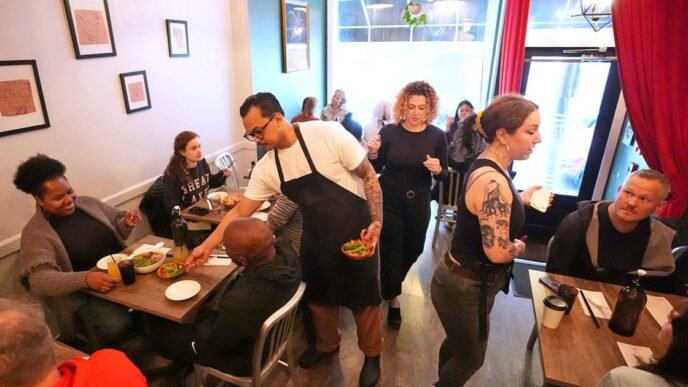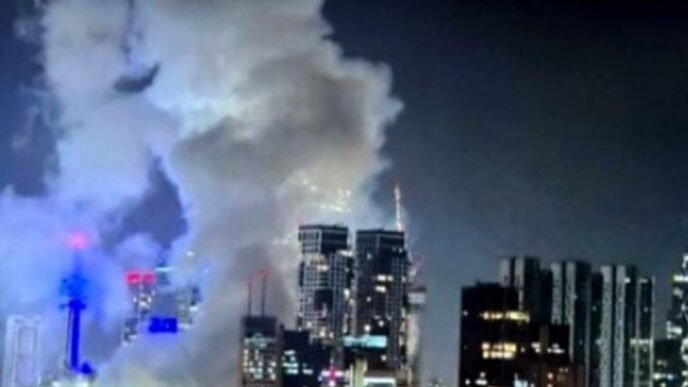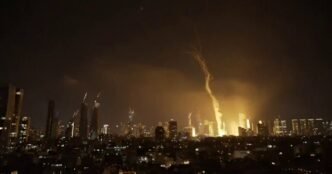The Trump administration does not plan on releasing pro-Palestinian activist Mahmoud Khalil despite a federal judge’s ruling this week that he cannot be deported or detained based on a determination from Secret of State Marco Rubio that he is a threat to national security.
In a letter filed on Friday afternoon, officials from the Department of Justice argued that while Khalil can’t be detained based on Rubio’s determination, according to the judge’s ruling, he can be detained for other reasons. The officials cited immigration-related statutes.
“The Court instead enjoined Respondents from detaining Khalil ‘based on the Secret of State’s determination,’’ DOJ officials said in the letter. “That injunction does not interfere with Respondents’ authority to detain Khalil on other grounds.”
To justify Khalil’s removal, Rubio released a memo in April, citing an obscure provision of the Immigration and Nationality Act of 1952. It allows the secret of state to deport noncitizens if the secret determines their presence in the country would result in “potentially serious adverse foreign policy consequences for the United States.” Rubio wrote in the memo that allowing Khalil, who led protests against the war on Gaza, to stay in the U.S. would create a “hostile environment for Jewish students in the United States.”
But the judge, Michael Farbiarz of the U.S. District Court for New Jersey, ruled that the foreign policy grounds for Khalil’s detention are insufficient and likely unconstitutional.
Khalil, who grew up in a Palestinian refugee camp in Syria and and was granted permanent U.S. resident status, became a widely recognized activist amid the pro-Palestinian protests at Columbia University last year. In March, he was abruptly arrested outside his student housing on campus and detained before the Trump administration accused him of leading “activities aligned to Hamas, a designated terrorist organization.” Since, his legal counsel has been challenging efforts to deport him. He has not been charged with any crime.
A spokesperson for the Department of Homeland Security has alleged that Khalil has acted to “glorify and support terrorists.”
In a declaration filed last week, Khalil called the claims “grotesque and false.”
“These were not just attacks on my character; they were efforts to erase my humanity,” Khalil said in the legal filing.
Amid his three months in detention, Khalil also became a father and fought for contact with his newborn son Deen. Khalil’s wife, Dr. Noor Abdalla, a Michigan-born dentist, gave birth in April. ICE previously rejected Khalil’s request to attend his son’s birth, court documents show.
“The most immediate and visceral harms I have experienced directly relate to the birth of my son, Deen,” Khalil said in the legal filing. “Instead of holding my wife’s hand in the delivery room, I was crouched on a detention center floor, whispering through a crackling phone line as she labored alone.”
ICE also denied a request last week for Khalil to be moved from Louisiana to a facility closer to his family, with no explanation, emails show. The agency’s own policy requires detaining noncitizen parents or legal guardians, who are prim caretakers or have custody of minor children, in facilities close to their children.
“ICE’s directive recognizes that the government should have no role in destroying the family unit, and yet that is exactly what is happening here,” said Nora Ahmed, legal director of the American Civil Liberties Union of Louisiana, which is part of Khalil’s legal team.
Khalil met his son for the first time last month, his attorneys said, just before an immigration hearing.
Khalil has drawn widespread support from pro-Palestinian activists nd free speech advocates, with his arrest and detention prompting protests across the country. Most recently, several celebrities who are also fathers, including comedian Mo Amer, actors Mark Ruffalo and Mahershalla Ali and “Rage Against The Machine” frontman Tom Morello, came together to read a letter that Khalil wrote to his son ahead of Father’s Day on Sunday.
“I am a Palestinian refugee, asylee to America, became a citizen in 2009, and in 2023 I had a son,” Amer said. “Mahmoud’s letter is like a dagger to the heart, and that’s why I am doing this.”













